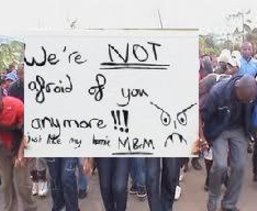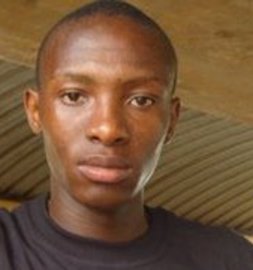|
Swaziland Labour | Politics | Human rights Swaziland uprising "begins on Friday"
Originally, ad-hoc groups of discontent Swazis youths through social media and internet forums had called for a "North Africa inspired" uprising on 12 April. The call rapidly gathered wide support, also from the different opposition groups in Swaziland - all being illegal as no opposition is allowed in the kingdom.
"We have lost confidence in the present government and call for it to hand power back to the people," Mr Dlamini adds. He explains that SNUS, since 2009, had negotiated with King Mswati over a controversial scholarship reform. "In our last petition, delivered in early February this year, we promised the government that in the next protest march we will not come back demanding the review of the scholarship policy but would be calling for a regime change. Our genuine caution was ignored and now the government will face our wrath." Also Swazi workers are currently furious as overspending by King Mswati and an increasing international isolation has led to dramatic budget cuts. Government plans to sack up to 7,000 civil servants, cut salaries for other state employees and make further cuts in social spending. Strikes had been in the planning. Mr Dlamini made a "humble call" for cooperation with the Swazi police and army, but added that this "does not mean that we will not defend ourselves in the event we are attacked." He also called on the many Swazi youths abroad, in particular in South Africa, to come home and help topple the regime. The Swazi protest movement earlier this week was encouraged by South Africa's President, Jacob Zuma, who made it clear that the powerful neighbour would not assist King Mswati in the way the Saudis are assisting the King of Bahrain in suppressing the protesters. Addressing the wave of pro-democracy protests in Africa and the Middle East, President Zuma in a speech said "Exile, torture, jail or even killing did not succeed to stop the masses of South Africa from demanding their freedom and cannot succeed anywhere else. The recently erupted and massive protests happened because people were tired of autocratic governments which had been there for a long time." By staff writer © afrol News - Create an e-mail alert for Swaziland news - Create an e-mail alert for Labour news - Create an e-mail alert for Politics news - Create an e-mail alert for Human rights news
On the Afrol News front page now
|
front page
| news
| countries
| archive
| currencies
| news alerts login
| about afrol News
| contact
| advertise
| español
©
afrol News.
Reproducing or buying afrol News' articles.
You can contact us at mail@afrol.com









